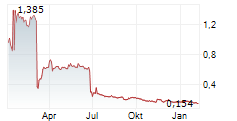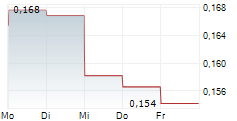
GOTHENBURG, SWEDEN / ACCESS Newswire / February 27, 2025 / IRLAB Therapeutics (STO:IRLAB-A)(FRA:6IRA) Gothenburg, Sweden, February 27, 2025 - IRLAB Therapeutics AB (Nasdaq Stockholm: IRLAB A), a company that discovers and develops new treatments for Parkinson's disease, today announces that data from the company's Phase IIb study of mesdopetam has been published in Movement Disorders Clinical Practice. The publication in this prestigious, peer-reviewed medical journal further validates the integrity and clinical importance of the study results, which support the primary efficacy parameter and dose level selected for the upcoming Phase III program.
The data analyses showed clinically meaningful and dose-dependent anti-dyskinetic effects of mesdopetam, although the primary efficacy endpoint, good ON-time, was not met in this Phase IIb study. Several secondary evaluations for ON-phase dyskinesia, including the Unified Dyskinesia Rating Scale (UDysRS), showed clinically relevant and statistically significant improvement. Patients randomized to the highest dose, 7.5 mg twice daily, showed a high UDysRS response rate with 71.4% of the subjects achieving clinically relevant improvement.
Furthermore, evaluation of OFF time showed a dose-dependent decrease, with the most substantial efficacy noted for the 7.5 mg dose, indicating that mesdopetam also may have antiparkinsonian efficacy.
Overall, treatment with mesdopetam was safe and well tolerated, with an adverse event profile similar to placebo.
"We are pleased that Movement Disorders Clinical Practice has accepted the publication of our Phase IIb data on mesdopetam. The results provide a strong foundation for the design of the upcoming Phase III program, where UDysRS will be used to evaluate mesdopetam at a daily dose of 7.5 mg twice daily.," says Susanna Waters, Director of Systems Pharmacology at IRLAB.
The randomized, double-blind, placebo-controlled Phase IIb study of mesdopetam evaluated the efficacy, safety, and optimal dose of the drug candidate in people with PD-LIDs. The study randomized 156 patients into four groups: three dose levels (2.5, 5 and 7.5 mg) of mesdopetam and a placebo group. Approximately 40 patients were included in each group, and the treatment period was three months. The study was conducted at 46 study sites in Europe, Israel, and the US. Top-line data from the study were first announced in February 2023.
The article, titled Mesdopetam for the treatment of levodopa induced dyskinesia in Parkinson disease: A randomized Phase 2b trial, is written by Angelo Antonini et. al.
The published article can be read in full here: https://movementdisorders.onlinelibrary.wiley.com/doi/full/10.1002/mdc3.70004
This release discusses investigational uses of an agent in development and is not intended to convey conclusions about efficacy or safety. There is no guarantee that such investigational agents will successfully complete clinical development or gain health authority approval.
For more information
Kristina Torfgård, CEO
Phone: +46 730 60 70 99
E-mail: kristina.torfgard@irlab.se
Nicholas Waters, EVP and Head of R&D
Phone: +46 730 75 77 01
E-mail: nicholas.waters@irlab.se
About mesdopetam
The investigational drug mesdopetam (IRL790), a dopamine D3 receptor antagonist, is being developed as a treatment for Parkinson's disease levodopa-induced dyskinesias (PD-LIDs). The objective is to improve the quality of life for people living with Parkinson's and having a severe form of involuntary movements commonly occurring after chronic levodopa treatment. Around 25-40 percent of all people being treated for Parkinson's develop LIDs, which equates to approximately 1.4-2.3 million people in the eight major markets globally (China, EU5, Japan and the US). Mesdopetam has also potential as a treatment for Parkinson's disease Psychosis (PD-P), and other neurological conditions such as tardive dyskinesia, representing an even larger market. The Phase Ib and Phase IIa studies showed a good safety and tolerability profile as well as proof-of-concept with potential for a better anti-dyskinetic effect compared with current treatment options. A Phase IIb study, completed in 2023, showed that mesdopetam has a dose-dependent anti-dyskinetic and anti-parkinsonian effect in combination with a tolerability and safety profile on par with placebo. The mesdopetam program is now undergoing preparations for Phase III.
About IRLAB
IRLAB discovers and develops a portfolio of transformative treatments for all stages of Parkinson's disease. The company originates from Nobel Laureate Prof Arvid Carlsson's research group and the discovery of a link between brain neurotransmitter disorders and brain diseases. Mesdopetam (IRL790), under development for treating levodopa-induced dyskinesias, has completed Phase IIb and is in preparation for Phase III. Pirepemat (IRL752), currently in Phase IIb, is being evaluated for its effect on balance and fall frequency in Parkinson's disease. IRL757, a compound being developed for the treatment of apathy in neurodegenerative disorders, is in Phase I. In addition, the company is developing two preclinical programs, IRL942 and IRL1117, towards Phase I studies. IRLAB's pipeline has been generated by the company's proprietary systems biology-based research platform Integrative Screening Process (ISP). Headquartered in Sweden, IRLAB is listed on Nasdaq Stockholm (IRLAB A). For more information, please visit www.irlab.se.
Attachments
IRLAB publishes Phase IIb data on mesdopetam in Movement Disorders Clinical Practice
SOURCE: IRLAB Therapeutics
View the original press release on ACCESS Newswire



